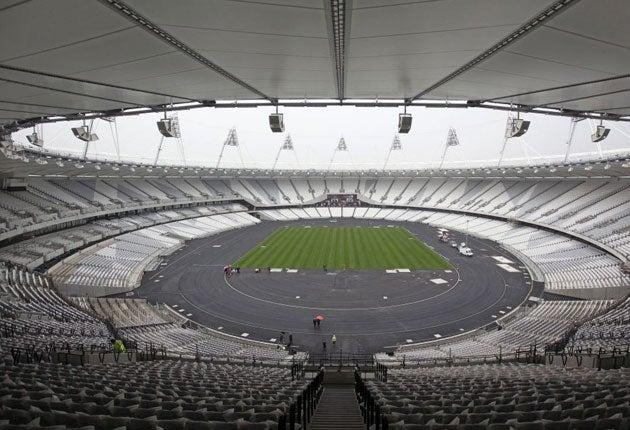SAS men go under cover to assess Olympic terror risk
But two soldiers are arrested on suspicion of leaking counter-terror operation to broadcaster

Undercover SAS men have been scouting major shopping centres in London to assess the capital's vulnerability to a Mumbai-style shooting during the 2012 Olympics, The Independent on Sunday can reveal. And two SAS men suspected of leaking details of the classified counter-terror operation have been arrested on suspicion of breaching the Official Secrets Act, according to security sources.
The men, who have not been named, are in their 30s and have been bailed until next month. It is understood they are alleged to have been in the process of passing details of the operation to a British broadcaster. A report is being drawn up for the Crown Prosecution Service, which will decide whether they will face criminal charges.
Confirmation of the arrests, which took place last month, emerged yesterday, and Whitehall officials described the allegations as "very serious".
The vulnerability of shopping centres to terror threats is echoed in a report published this week warning that Islamic extremists are "highly likely" to mount terror attacks at the games next year. "Soft targets" such as shopping centres, pubs and public transport are "more likely to see successful attacks" than Olympic events themselves, according to the report by risk consultants Exclusive Analysis.
Pubs around Leicester Square or Covent Garden, as well as the Javelin Shuttle high-speed train from St Pancras in central London to Stratford International, which will carry up to 25,000 people an hour during the Games, are cited as potential targets.
And the Westfield Stratford City shopping centre, which an estimated 70 per cent of spectators will pass through en route to the Olympics, is "another attractive target, especially for co-ordinated backpack bombs".
Bombers could also evade security checks at large, open-air events at Hyde Park, the report warns. "Small devices... could probably be smuggled in, though these are unlikely to incur mass casualties. Still easier would be a multiple bomb attack against pubs where people are watching events."
It also warns it is "highly likely" there are security gaps in the vetting of Games personnel. The volume of staff required, combined with a reliance on volunteers, will mean it will be relatively easy for criminals and potential terrorists to get through, the report says. This was illustrated by the recent arrests of two G4S security guards at the Olympic Park, after a small amount of Semtex and cocaine was allegedly found during a vehicle search, although terror links have been ruled out.
The report warns that focusing on Islamist terrorism may lead to "oversight, ignorance, underestimation or failure to understand indications of and failure to plan accordingly to prevent attacks by other actors", and cites Republican dissidents as very likely to stage a hoax bomb attack along the Olympic torch relay route. It is likely a terrorist attack "will place an untenable strain on resources and lead to compromises in security efficiency".
A spokesman for the Association of Chief Police Officers (Acpo) claimed the report contains "suppositions" and "inaccuracies which the police service and our partners would question".
Yet a terror attack is highly likely, according to the Government's Olympic security strategy, released last month. Plans envisage a potential increase in threat level to critical, meaning an attack is imminent. Terrorists may try to use "chemical, biological, radiological and nuclear substances", its risk assessment says. This labels the Games "an appealing target", with attacks on public transport "some of the more likely to be attempted".
An intelligence-led approach, taking into account all eventualities, is being taken, an Acpo spokesman said yesterday. He added: "Resourcing the Games... will be a significant challenge for the police service, especially at a time when core funding for the service is being reduced."
Counter-terror policing is being cut by 10 per cent over the next four years, although officials claim funding for Olympic security remains a priority.
Bookmark popover
Removed from bookmarks